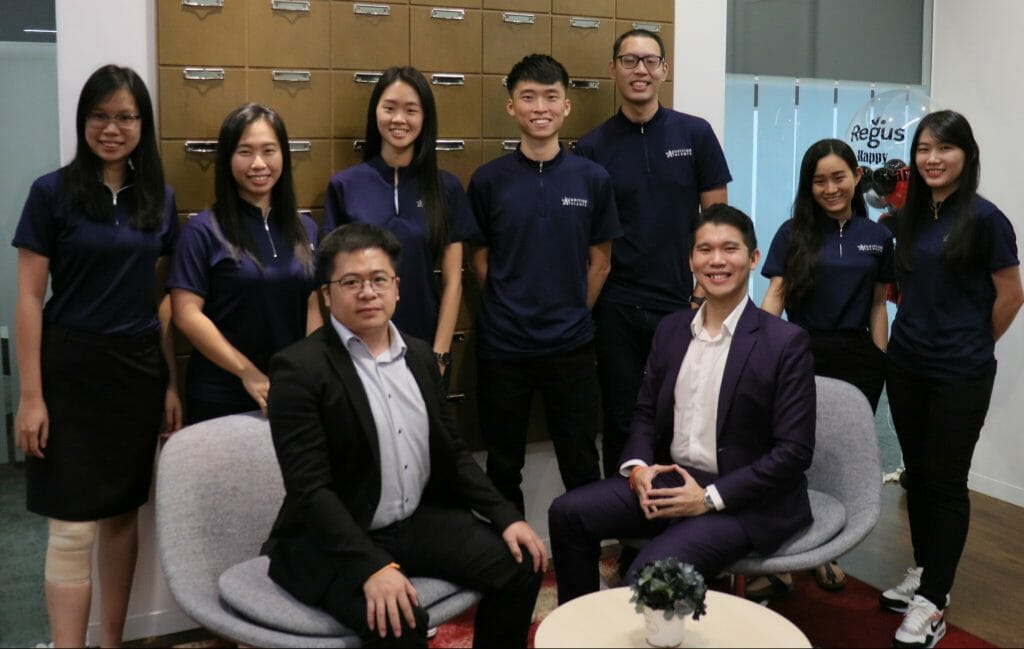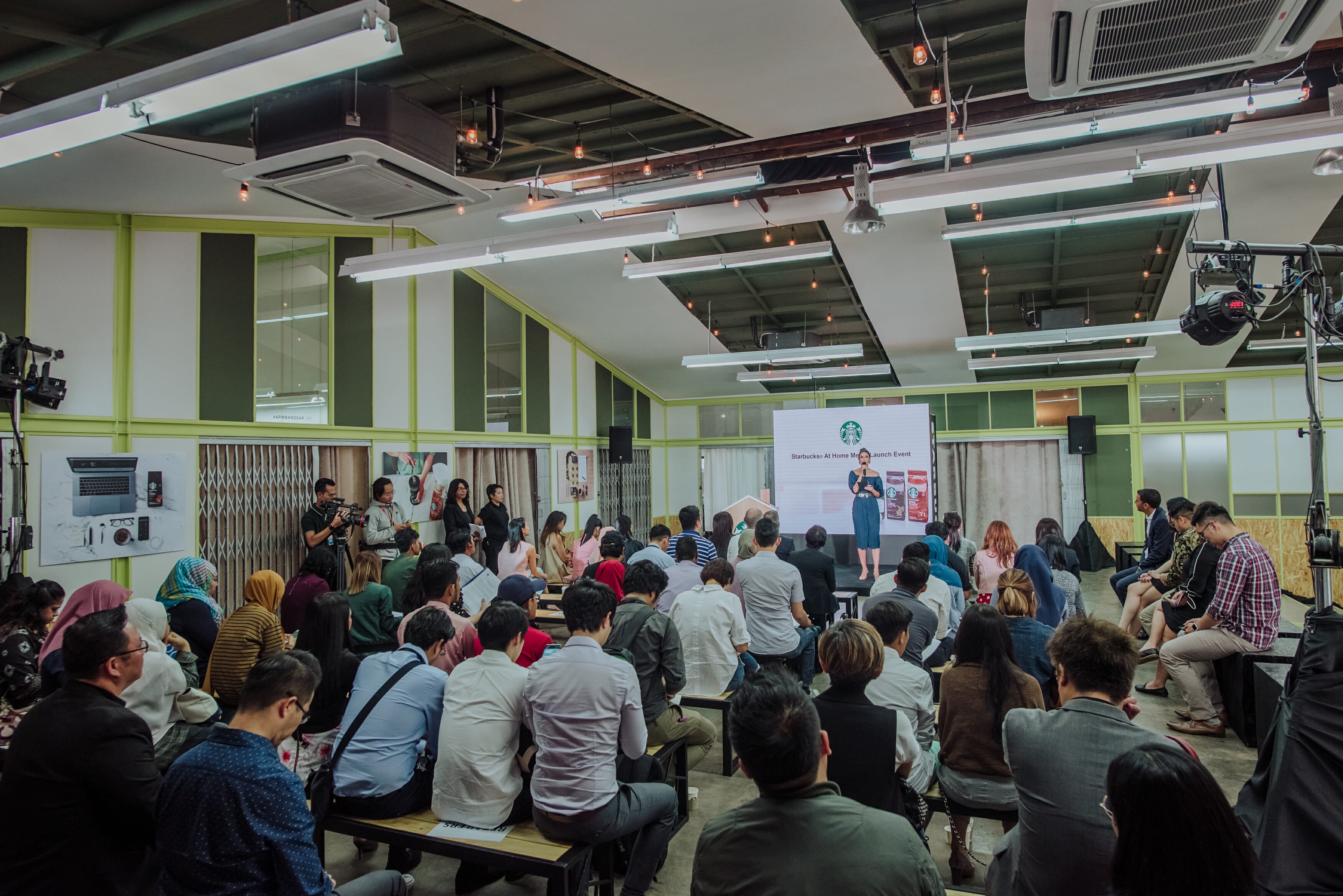Disclaimer: In Real Life is a platform for everyday people to share their experiences and voices. All articles are personal stories and do not necessarily echo In Real Life’s sentiments.
In the run-up to Malaysian Confessions: Real Entrepreneurs, Real Stories, we take a closer look at two speakers at the event: Michael Teoh and Low Kean Peng from Thriving Talents, a company that consults and trains youth talents in organisations and universities to succeed in life and work.
In this exclusive interview, Michael and Kean Peng share about the differences between leaders, followers and rebels, and why sometimes, an organisation needs all of them to have an effective work culture.
A Brief Introduction to Thriving Talents

image: michael teoh (left) and low kean peng (right).
Michael Teoh has held prominent positions as a board member within public organizations, demonstrating notable leadership acumen as one of the youngest members. His advisory role extended to advising four Malaysian Education Ministers, and he served as a Global Advisor for Microsoft’s Youth Spark initiatives. Notably, he has engaged with esteemed figures such as President Obama and received a written letter of recommendation from Helen Clark, the former Prime Minister of New Zealand, during his academic tenure.
The international reach of his company, Thriving Talents, is a testament to its global perspective, boasting offices in 41 countries in addition to its Malaysian headquarters.
In his capacity as Head of Customer Success, Low Kean Peng plays a pivotal role as Michael Teoh’s closest collaborator. With a composed and focused demeanor, he complements Michael’s leadership style by providing support and expertise as required.
Kean Peng’s responsibilities encompass overseeing operations at Thriving Talents and cultivating relationships with companies across various scales, ranging from startups to multinational corporations. He has also demonstrated a keen involvement in advancing Industry 4.0 technologies.
First impressions

image: kean peng (left) and michael (right) with the staff of thriving talents in their office in puchong.
My first impression of their main office was filled with colourful pictures of their staff on different company retreats, people bustling about making sales pitches, and the clack-clacking of keyboards.
Then Michael bounds up to me, all smiles, clad in a stylish purple suit.
“Hi! You are from In Real Life? Welcome!” He enthuses.
Michael shows us to the coworking space which houses Thriving Talent’s satellite office, and we were soon joined by Kean Peng. Reserved, but flashing me a warm smile, he settles down next to Michael, and we begin the interview.
1. Can you spot who among your team are the leaders, the followers, and the rebels?
Michael: Yes, of course! Here’s how to spot a leader in your team: They do not necessarily have to be in a position of authority. Leaders are characterised by their qualities — proactive, resourceful, and able to make things happen.
Kean Peng: Yes, that’s right. Leaders are the kind of people who, when you delegate a task to your team, they’ll be very proactive. They’re resourceful, take ownership, and come up with more ideas for you. You’ll find that leaders are the ones who’ll say: “I think this might work, why don’t we try this?”
Followers are people who, if you don’t tell them to do something, they usually won’t do anything proactive about it. When you set goals and delegates tasks to your team members, followers will tend to come up to you asking for more jobs, but they struggle to come up with more ideas and work on it themselves.
As for the rebels — they are those who give a lot of complaints and feedback (laughs).
Actually, I believe there are two types of rebel — the bad ones complain a lot but don’t take any action. The good ones complain, yes, but at the same time, they are taking action to change. So there are good rebels and bad rebels, depending on how you see it.
At Thriving Talents, we encourage our team to show us ideas and execute them. Even if it fails and causes some losses, at the end of the day, you can learn something from it.
2. Which of these kinds of employees are beneficial for the company?
Kean Peng: You need all of them! Yes, even the followers and the bad rebels. Imagine if you had 11 Messi’s in the football field, could Messi be the best goalkeeper or defender?
Kean Peng: There are times where we really need team members who are proactive, and there are times we really need team members to be the followers.
Michael: Yes, that’s right! If I may interject, the strength of the follower is that they are the executors — they complement and collaborate with the leaders, the proactive ones.
3. Who are the ones you consider bad for the company?
Michael: There are those who we call, the “toxic” rebels. They are easy to recognise: Those that complain a lot, who quarrel with others, who affect morale. If you ask them how to better the company, they may say:
“Wei, I just met boss eh. Walau eh, I ask him ah, I need a car ah, he say back, “what can I do?” Walau, “what can I do?” Better I become my own boss lah.”
That’s the sort of talk you need to cut out.
Kean Peng: But if you’re talking about the good rebels, they are the ones who will sometimes spark new initiative, new ideas to you. Sometimes, this feedback is good for us to reflect as a leader. It makes us ask ourselves, are we steering the company in the right direction?
Michael: Yes, because if you are proactive as a person, even if you consider yourself a “follower”, if you don’t like something, and if the company has a platform for you to share openly, then, you can be that “good” rebel as well.
Of course, we always ask them first “Why are you not happy?” So you can see whether they’re the good or bad rebel before jumping to any conclusions.

image: michael (middle right) and kean peng (middle left).
4. How do you ask an employee, “Why are you not happy?”
Michael: There’s a reason we do this, which is to understand a person’s core motivation. The secret towards understanding anyone’s core motivation is to be as specific, and as real as possible.
So, number one, you can ask them, “What makes a fulfilling day at work?”
If the person says, “It’s a day where I feel happy.”
Follow it up with, “What is happiness to you? Is it money? Is it the experience?”
“Oh, money lah.”
“How much money?”
“If I can get paid 50,000 ringgit a month I’ll be happy.”
“What is that money used for?”
“No need to work any more mah.”
“Why don’t you want to work any more?”
“Oh, I want to give my mother a better life.”
So now you know, the mother is the key to that employer’s happiness. Then, as the manager or boss, you have to capture all those points.
And then, to the best of your ability, you have to try to cater to their job description to match what they want. It can be giving them more off days to visit their mother.

5. Was there ever a time where you had to talk to someone who was seriously unhappy in your company?
Michael: It was just last year, actually! One day, we had a breakdown from one of the crucial members of the team.
It was 11 am, one of my core leaders got fed up with it all — she packed her bags and just went home.
All the other team members went and stood outside her apartment and begged her to come back. When she came back to the office, she had been crying.
I asked, “What’s wrong?”
She said, “You know, I’m very sick of my job! I’m always in the office doing client liaison.”
I said, “Okay. But that’s what you wanted to do, right?”
She said, “Yeah, but — No, I wanna be like you and Kean Peng! I wanna go out and meet clients! I wanna pitch!”
I was pleasantly surprised. So I said, “Okay, awesome! Follow me next week!”
So next week, we pitched to a company for a 300-people team-building event. I went there and she followed me as my assistant.
I pitched to the board, and after 20 minutes of pitching, they said, “We like what we hear. Okay lah, you get to do the training.”
Later, as we left the meeting room, she said incredulously, “ You saw or not? All the board members, out of eight, five were looking at their phones, three were looking at you with utter disgust, and yet, we still got the job?”
She was shocked. She had never expected pitching to be like this.
I said, “Oh well, that’s the people you meet sometimes.”
Next week, I asked her, “You wanna come for the next pitch?”
She said, “No, no, no, oh my God, I’m sooo grateful that I’m in the office right now.”
(Laughs good naturedly) Now she’s happy to stay in the office.
6. Is a company’s DNA derived from its leaders?
When it comes to company leadership, you can have many different types of leaders.
A company may evolve and adapt, according to the change of market, according to the change of the culture it has to adopt at that period of time, to remain competitive, and types of leaders that are leading it.
But, there’s only one thing that the company should not change at the drop of a hat: Values. Values are your compass. Whenever you are lost, always refer back to your values.
Thriving Talents has derived the lessons learnt in this story from Fortune 500 companies across the world that they have worked with and trained since 2012.
Michael Teoh and Kean Peng will be speaking at Malaysian Confessions: Real Entrepreneurs, Real Stories

Event Details
Malaysian Confessions: Real Entrepreneurs, Real Stories.
Date: 7th March 2020 (Saturday)
Time: 9am – 6pm
Venue: UnionSPACE, APW Bangsar (Click here for location via Google Maps)
Facebook event page: RSVP here
To find out more, visit the event webpage.
For more stories like this, read: 4 Inspiring Lessons We Can Learn From These Malaysian Entrepreneurs and Stress, and How to Handle It – by Raja Jesrina Arshad, Co-Founder & CEO of PurelyB.

You might also like
More from Real Skills
How I Saved Almost RM50,000 On Buying My First Car
Here's how this Malaysian man with a RM3,500 salary saved RM50,000 on his first car.
Angry M’sian Boss Demands Unpaid Overtime Over Raya, Causes 9 Staff To Quit
An anonymous employee at a local SME shares how a bad-tempered boss eventually caused 9 staff to quit before Hari …
I Studied In Chinese School As A Malay Boy, Here’s What I Learnt
Every time I used Mandarin outside of school, family members would come up to me at gatherings and ask me …



















